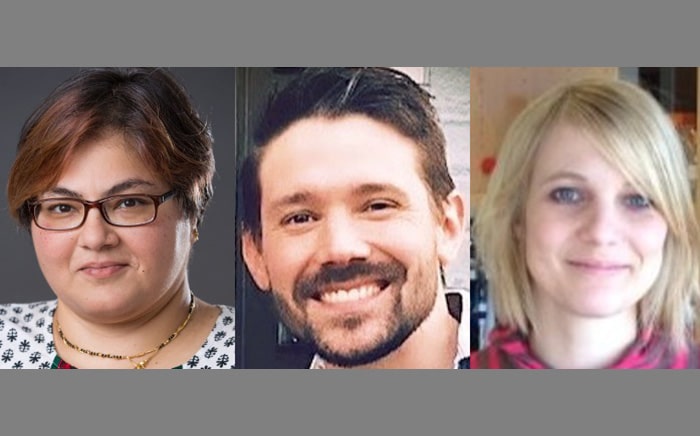Scientists at the New York Genome Center (NYGC) have received an Amyotrophic Lateral Sclerosis Research Program Clinical Development Award from the Department of Defense’s Congressionally Directed Medical Research Programs to lead a project focused on performing single nucleus RNA sequencing of postmortem tissues from patients in the ALS-frontotemporal dementia clinical spectrum.
Single nucleus RNA sequencing has emerged as powerful technique for profiling gene expression in cells that are difficult to isolate, such as those from tissues that are archived or in the complex neurological pathways of the human brain and spinal cord.
Hemali Phatnani, PhD, NYGC Core Faculty Member and Director, Center for Genomics of Neurodegenerative Disease, and Assistant Professor of Neurological Sciences in the Department of Neurology, Division of Neuromuscular Medicine, at NYGC member institution Columbia University, is principal investigator of the award-winning project. Jade Carter, Associate Director, Technology Development, NYGC, and Isabelle Schmutz, PhD, Senior Research Scientist, Technology Development, NYGC, are Co-Investigator and Scientist on the project, respectively. Vilas Menon, PhD, Assistant Professor of Neurological Sciences (in Neurology and the Taub Institute for Research on Alzheimer’s Disease and the Aging Brain) at Columbia University Medical Center, and Ariel Levine, MD, PhD, Stadtman Investigator, Spinal Circuits and Plasticity Unit, National Institute of Neurological Disorders and Stroke, will be serving as consulting collaborators on the project.
The team’s research objective: uncover cell-type specific gene expression patterns and elucidate disease-specific disruptions to regulatory networks across the ALS-frontotemporal dementia spectrum. Such discoveries may lead to the identification of new targets for drug therapies and therapeutics for these complex neurological diseases, which share common clinical, pathological, and genetic features.
For this project, the research team will be interrogating samples from the Target ALS cohort, part of the data made available to the research community through the NYGC ALS Consortium. The data generated in the project will be integrated with separately-funded, NYGC-generated spatial genomics, whole genome, and bulk RNA sequencing data analysis from matched tissues in this cohort. All collected/analyzed data will be made available to the research community for ongoing study.
